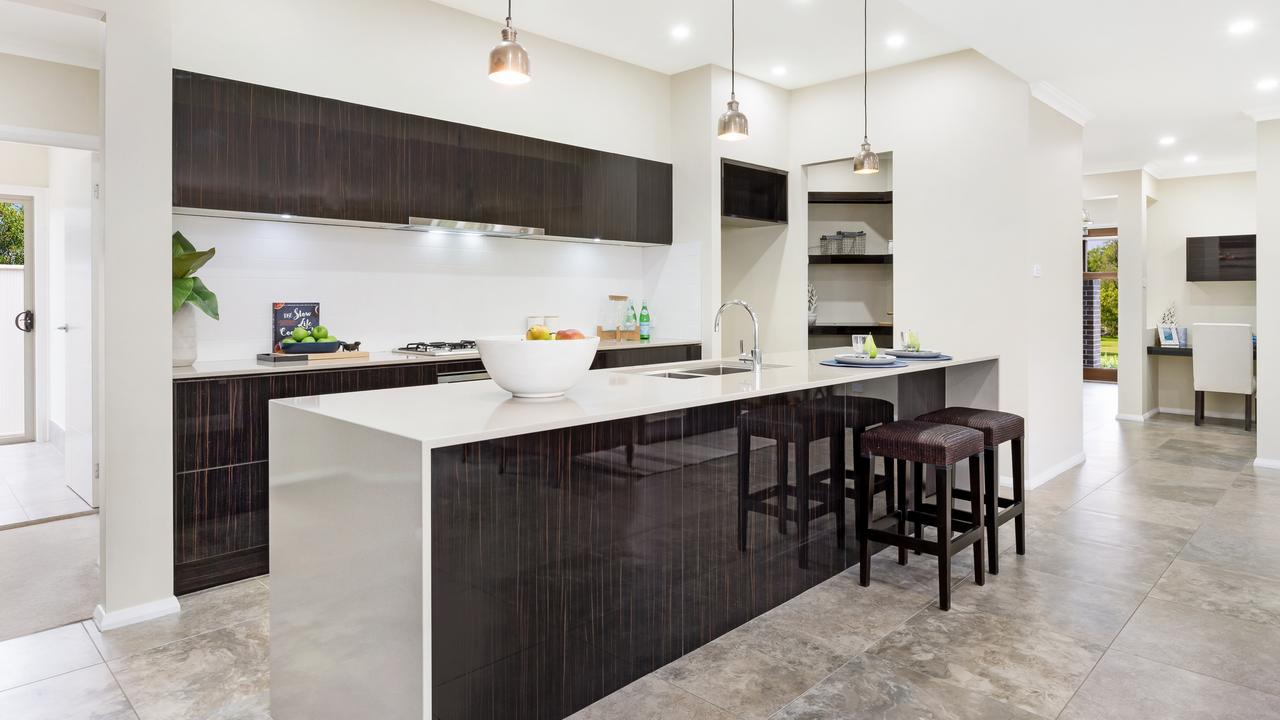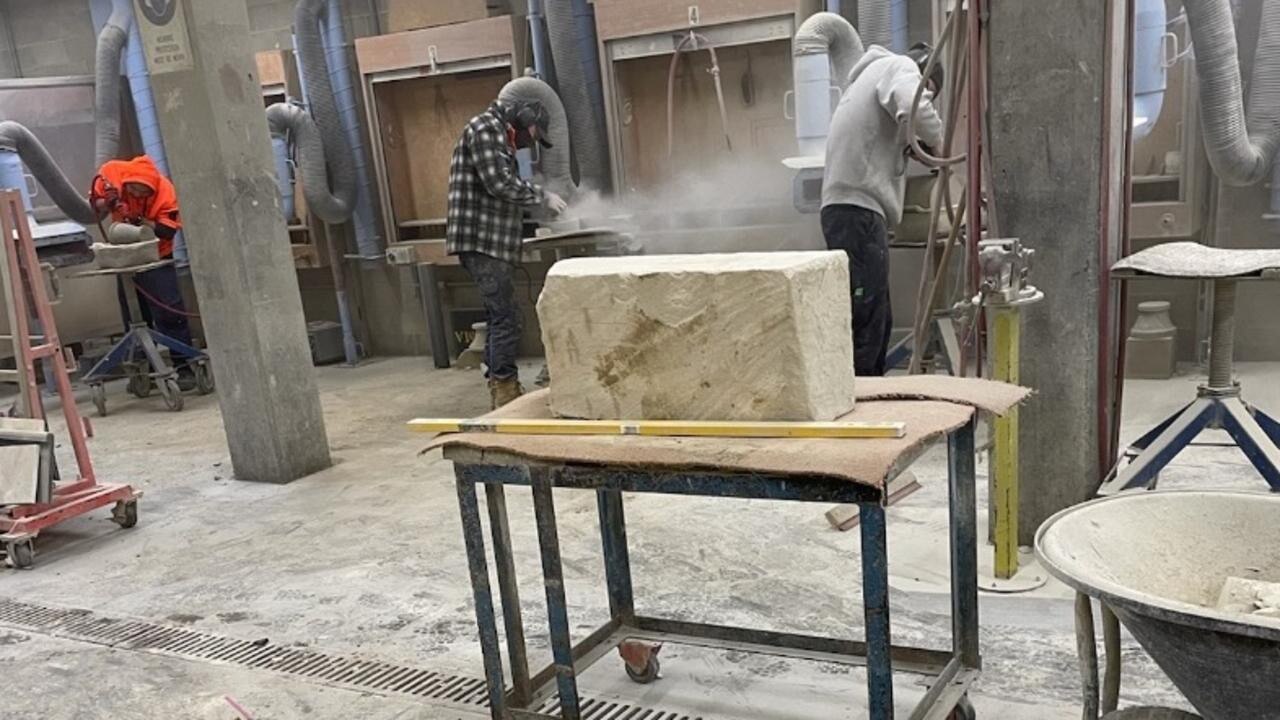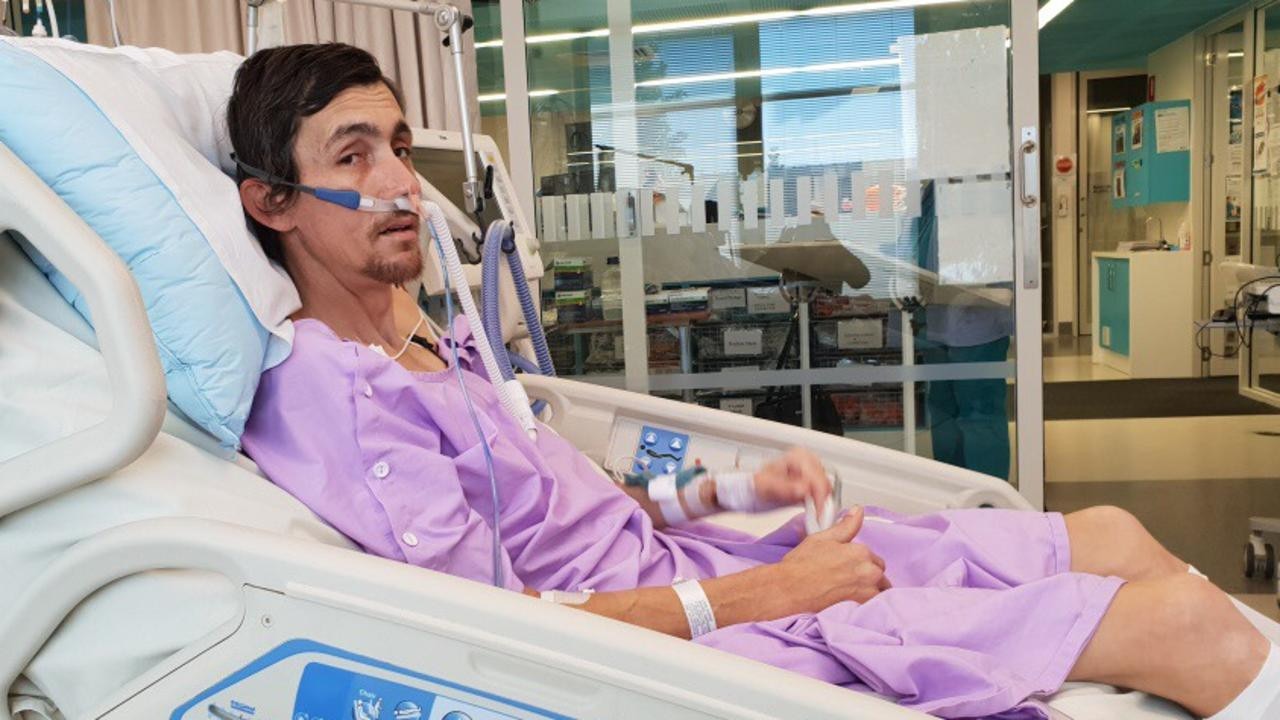Call for kitchen staple to be banned
A common kitchen material has been called “worse than asbestos” as tradies die from handling it. Activists are calling for a ban.
A common “deadly” kitchen building material has been linked to the deaths of dozens of Aussie tradies, as one of the nation’s top asbestos support groups says it is “worse than asbestos”.
Engineered stone countertops are riddled with deadly silica, which causes silicosis — an incurable work-related lung disease.
New data reveals more than 275,000 tradies are at risk, with more than 70 already diagnosed cases before the courts. Workers, many of them on oxygen tanks or needing lung transplants, insist they were never told how dangerous the material could be.

Now, a leading asbestos disease support group in Queensland and nationally has said they believe silicosis is “worse” than asbestosis — the horror illness that changed Australian building safety forever.
Speaking to news.com.au on Wednesday, Asbestos Disease Support Society general manager Lee McCallum said he believed silicosis was “worse than asbestos”.
The time from exposure to silica dust to developing symptoms of silicosis was only about five years, compared to the 30 years needed after exposure to asbestos, Ms McCallum explained.
“Once somebody is diagnosed, they are typically in their 20s, 30s or early 40s,” she said.
“They are predominantly men with young families who are sole bread winners, but women are also victims.
“It’s such a life limiting illness and they don’t get to live into older age and see their children grow up. It is so damaging to families.”

The Asbestos Disease Support Society, which has since launched a separate wing dedicated to supporting sufferers of silicosis, is calling for an immediate ban on the use of engineered stone.
Workplace minister Tony Burke has committed to action ahead of a meeting next week — but more than a quarter of a million Australian workers are already at risk after decades of lax regulation.
A study from Curtin University estimated more than 275,000 workers, mostly tradies, were exposed to high levels of the carcinogenic dust. Up to 103,000 of them would be diagnosed with silicosis, the study predicted.
More than 70 silicosis-related court cases have been filed in Victoria and Queensland, and several more in other states.
Many are from stonemasons suing their employers for failing to provide a safe working environment. Some are also going after the product’s manufacturers, including industry titan Caesarstone.

Caesarstone’s latest annual report showed that, in December 2021, the industry giant was involved in 37 lawsuits relating to silicosis claims in Australia.
Since September 2002, the company’s Australian liability insurer ceased covering newly diagnosed silicosis-related claims. Caesarstone Australia now pays its legal settlements from its revenue.
Engineered stone, commonly used in countertops as a cheaper alternative to marble and granite, poses no risk to those living in the house after it’s installed.
To be safe in the workplace, though, it must be cut while wet, by workers wearing full protective gear.
That is, unfortunately, not how many stonemasons work — particularly not before 2018, when the effects of silica were known but the first Australian silicosis suffer had not yet come forward.

Engineered stone contains up to 95 per cent crystalline silica, the dust of which is highly toxic. When inhaled in large quantities, it can cause a host of deadly illnesses, including silicosis, auto-immune diseases, lung cancer, kidney disease and pulmonary infections.
Marble, by contrast, contains just two per cent silica. Granite contains between 10 and 50 per cent.
Caesarstone insisted the problem is not with their product, but rather with poor handling of it.
It had included warning labels about the risks of silicosis in its safety data sheets since the 1990s, followed by warning labels on the slabs in 2010 and a “comprehensive master of stone” online learning platform in 2020, the company said.
“Engineered stone is entirely safe to consumers in its installed form and silica only presents a risk to workers if stone is handled incorrectly,” Caesarstone said in a statement.
“The biggest problem historically has been fabricators’ compliance with regulations and enforcement of those regulations. That’s the role of employers and work safety regulators.”

Queensland stonemason Anthony White, 36, died of silicosis in 2019 having previously spoken out about the disease.
Within weeks of White’s death, the government had launched a national dust disease task force tasked with developing an approach to managing dust diseases including silicosis.
Some reforms have been introduced, but four years later, there still isn’t a national register, nor a requirement to monitor the air in workplaces that use engineered stone.
Instead, SafeWork NSW issues “improvement notices” when silica dust is found on toilets, in lunch rooms or on office benches, or if workers are found without proper protective equipment or training. The notices allow workplaces to address the problem within a time frame and without closing down.
SafeWork NSW said it had visited some 2100 silica-focused workplaces, and issued 1300 of these notices. About 900 of them were silica-related.






